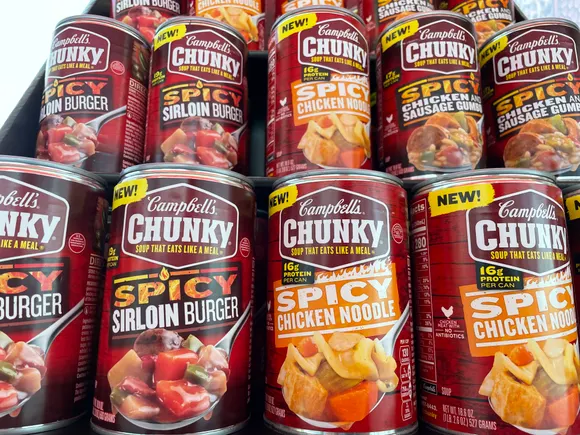Key Takeaways:
- The implementation of a 50% tariff on imported steel by the Trump administration has the potential to raise canned food prices by 9% to 15%, as per the Consumer Brands Association.
- The trade organization has warned that as many as 20,000 jobs in U.S. food manufacturing could be in jeopardy if consumers reduce their purchases of more expensive canned goods due to tariffs, leading CPG companies to switch to cheaper packaging materials.
- Various food products such as sauces, seafood, soup, and vegetables are being impacted by the steel tariffs.
Insight Analysis:
With the White House’s decision to double tariffs on steel and aluminum, the Consumer Brands Association acted swiftly to highlight the adverse effects on manufacturing and consumer behavior.
CBA, representing major companies like Coca-Cola, Campbell’s, and Del Monte Foods, pointed out that while most ingredients are domestically sourced, there are exceptions.
One significant exception is tin mill steel, where almost 80% is imported by domestic can makers and canned food producers from foreign markets, according to Robert Budway, President of the Can Manufacturers Institute.
Conagra Brands CEO Sean Connolly stated that due to the lack of domestic supply, the company has no choice but to import the majority of its canned food packaging. This trend has been exacerbated by the elimination of 75% of tin plate steel lines in the U.S. since 2018.
Tom Madrecki, VP of supply chain resiliency at CBA, emphasized the need for a nuanced approach by the Trump administration to safeguard supply chain dependencies and support U.S. manufacturers, workers, and consumers.
Several food and beverage manufacturers, including Campbell’s and Coca-Cola, anticipate a negative impact on their operations due to tariffs, with potential earnings reductions and shifts in packaging materials.

